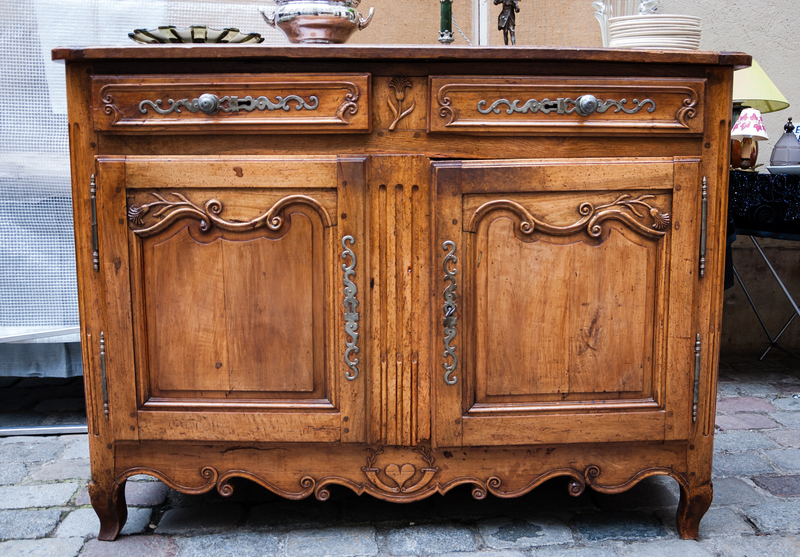Establish Lasting Order with Proactive Clutter Management
Are you tired of battling endless piles, lost items, and stress every time you look around your home or workspace? Conquering clutter is more than a one-time project--it's a lifestyle shift rooted in intentional, proactive clutter management. Discover effective strategies to create enduring organization, boost peace of mind, and reclaim your space with our comprehensive guide below.

What is Proactive Clutter Management?
Proactive clutter management goes beyond occasional cleaning sprees and quick-fix storage solutions. It's an ongoing process of anticipating, identifying, and addressing potential sources of mess before they accumulate. By implementing sustainable systems and routines, you can establish lasting order throughout your spaces--at home, at work, or anywhere you value clarity and calm.
Reactive versus Proactive: Understanding the Key Differences
- Reactive Approach: Tackles clutter only when it becomes overwhelming, resulting in frustration, lost time, and incomplete solutions.
- Proactive Approach: Anticipates future clutter, sets up preventative measures, and devises routines to manage items consistently.
This shift from reactive to proactive clutter control is the secret to maintaining a clutter-free environment in the long term.
Why Lasting Order Matters: The Benefits of Clutter Control
Creating sustainable order through proactive decluttering significantly impacts your wellbeing and productivity. Here are some transformative benefits:
- Improved Mental Health: Clean, organized spaces reduce stress, anxiety, and overwhelm.
- Increased Productivity: A tidy environment streamlines your ability to focus, locate important items, and get tasks done efficiently.
- Enhanced Creativity: Decluttered spaces inspire new ideas and creative thinking.
- Financial Savings: Track what you own and avoid unnecessary duplicate purchases.
- Better Relationships: Shared spaces free of clutter nurture harmony and communication.
Proactive Clutter Management Strategies
Ready to establish lasting order? Let's break down the essential proactive clutter management techniques that can transform your environment--one manageable step at a time.
1. Understand Your Clutter Triggers
Not all messes happen randomly. Pinpointing what causes your clutter--be it busy schedules, emotional attachments, or a lack of dedicated storage--enables you to intervene before piles develop. Ask yourself:
- Which areas get messy first?
- Are there items I consistently misplace or accumulate?
- Do I buy things for "just-in-case" scenarios?
Awareness is the first step toward effective, proactive clutter management.
2. Embrace the "One In, One Out" Rule
To establish lasting order, adopt a simple philosophy: whenever a new item enters your home--especially clothing, electronics, or kitchen gadgets--choose one similar item to donate, discard, or rehome. This curbs accumulation naturally and keeps your environment balanced.
3. Build Decluttering Into Your Routine
Short, regular tidying sessions are more effective than all-day marathons. Set aside 10-15 minutes each day or week specifically for quick decluttering:
- Sort mail and recycle unnecessary papers.
- Declutter one drawer, shelf, or small area at a time.
- Return items to their designated "homes" before bed or at the end of the workday.
These brief intervals reinforce your commitment to consistent order, making clutter less likely to spiral out of control.
4. Create Purposeful Storage Solutions
Invest in functional storage that matches your actual needs--not just what looks nice. Opt for:
- Clear containers or labeled bins (for easy identification)
- Vertical shelving and hooks (to maximize usable space)
- Multipurpose furniture (like ottomans with hidden compartments)
Organization only lasts when everything has a specific place.
5. Set Boundaries For Incoming Items
Whether it's hand-me-downs, online impulse buys, or free swag, establish clear limits on what you bring into your space. Ask yourself:
- Does this item fulfill a practical or emotional need?
- Can I make room for it without sacrificing order?
- Is this a duplicate of something I already own?
Discernment is key to preemptive clutter prevention.
6. Consolidate and Digitize
Paper clutter is a notorious culprit in both homes and offices. Scan important documents, go paperless with bills, and use digital calendars and to-do lists instead. Regularly delete or archive unused files to keep your digital space as neat as your physical surroundings.
7. Hold Regular "Clutter Audits"
Schedule monthly or seasonal reviews of your main living or working spaces. Invite household members or coworkers to participate. Use this time to:
- Evaluate what's working--and what isn't.
- Purge unnecessary items or reorganize as needed.
- Update storage systems that have fallen into disuse.
This proactive routine helps maintain your hard-won order year-round.
Proactive Decluttering Tips for Every Space
No area is immune to clutter. Here's how to apply proactive clutter management techniques throughout the most commonly disorganized spaces:
1. Kitchen
- Group similar items (e.g., baking supplies, snacks) together by zone.
- Implement the "first in, first out" rule to keep food fresh and reduce waste.
- Declutter cabinets, drawers, and the fridge once a month.
2. Bedroom & Closets
- Use drawer organizers and space-saving hangers.
- Store out-of-season clothes in labeled bins or under-bed storage.
- Follow the "one in, one out" guideline for all new wardrobe additions.
3. Home Office
- Digitize paperwork and maintain an electronic filing system.
- Keep only daily essentials on your desk.
- Sort through supplies regularly--donate extras you don't need.
4. Living Room
- Select multipurpose furniture for hidden storage (e.g., coffee tables with drawers).
- Use decorative baskets to corral remotes, magazines, and odds-and-ends.
- Establish a spot for "in-transit" items--like bags or children's toys--so they don't sprawl everywhere.
5. Entryway
- Install hooks or cubbies for coats, bags, and keys.
- Designate bins for shoes or mail to prevent pileups right at your threshold.
The Psychology of Clutter
Why does clutter accumulate in the first place? Understanding the emotional triggers--sentimental attachment, guilt over waste, or fear of needing something "someday"--empowers you to make more objective decisions. Acknowledge these feelings; then, gently remind yourself of your goals: peace, clarity, and lasting order.
Try reframing decluttering as a way to:
- Honor your memories while letting go of what you no longer use.
- Prioritize your present needs and well-being.
- Free up time and energy for what truly matters.
Maintaining Your Newfound Organization
Sustaining proactive clutter management requires commitment and flexibility. Here's how to keep yourself on track:
- Make It Social: Turn tidying up into a family or roommate activity. Organize seasonal "clear out" days with friends.
- Celebrate Progress: Acknowledge and reward yourself as you reach organization milestones.
- Stay Flexible: As your needs change--moving house, growing family, or shifting work roles--revise your systems to adapt.
- Seek Support: Struggling with decision fatigue? Consider a professional organizer or accountability buddy to stay motivated.
Common Pitfalls--and How to Avoid Them
Even well-intentioned clutter control efforts can be derailed by a few recurring mistakes:
1. Perfection Paralysis
Don't wait for the "perfect" organizational system or storage solution. Start with small changes and tweak as you learn what works for you.
2. All-or-Nothing Thinking
You don't have to declutter your entire home at once. Focus on one category, area, or habit--steady progress beats burnout every time.
3. Ignoring Maintenance
Even the best systems need routine check-ins. Schedule regular upkeep and embrace it as a form of self-care.

Clutter-Free Living: More Than Just a Clean Space
Establishing lasting order with a proactive approach does more than just tidy your home. It:
- Boosts self-confidence and sense of control
- Saves money and reduces waste
- Grants you more free time and greater freedom
- Improves your relationships and social life
Ultimately, proactive declutter management is a gift you give yourself--a foundation for peace, productivity, and joy in everyday life.
Ready to Start Your Proactive Clutter Management Journey?
- Assess your current space with curiosity and compassion.
- Pick one or two strategies from this guide and implement them today.
- Track your progress and adjust your routines as needed.
Your future self will thank you. By anticipating clutter, preventing accumulation, and maintaining sensible systems, you establish lasting order that underpins your goals and happiness--for today and for years to come.
Conclusion: Embrace Clarity with Proactive Decluttering
It's time to make a lasting change. With proactive clutter management techniques, you don't just tidy up once--you lay the groundwork for continuous order, harmony, and calm. Let these strategies inspire and empower you to transform your space, your habits, and your mindset. Start small, stay consistent, and watch as the benefits of organized living ripple through every part of your life.
Establishing lasting order with proactive clutter management isn't just possible--it's a journey worth starting today.